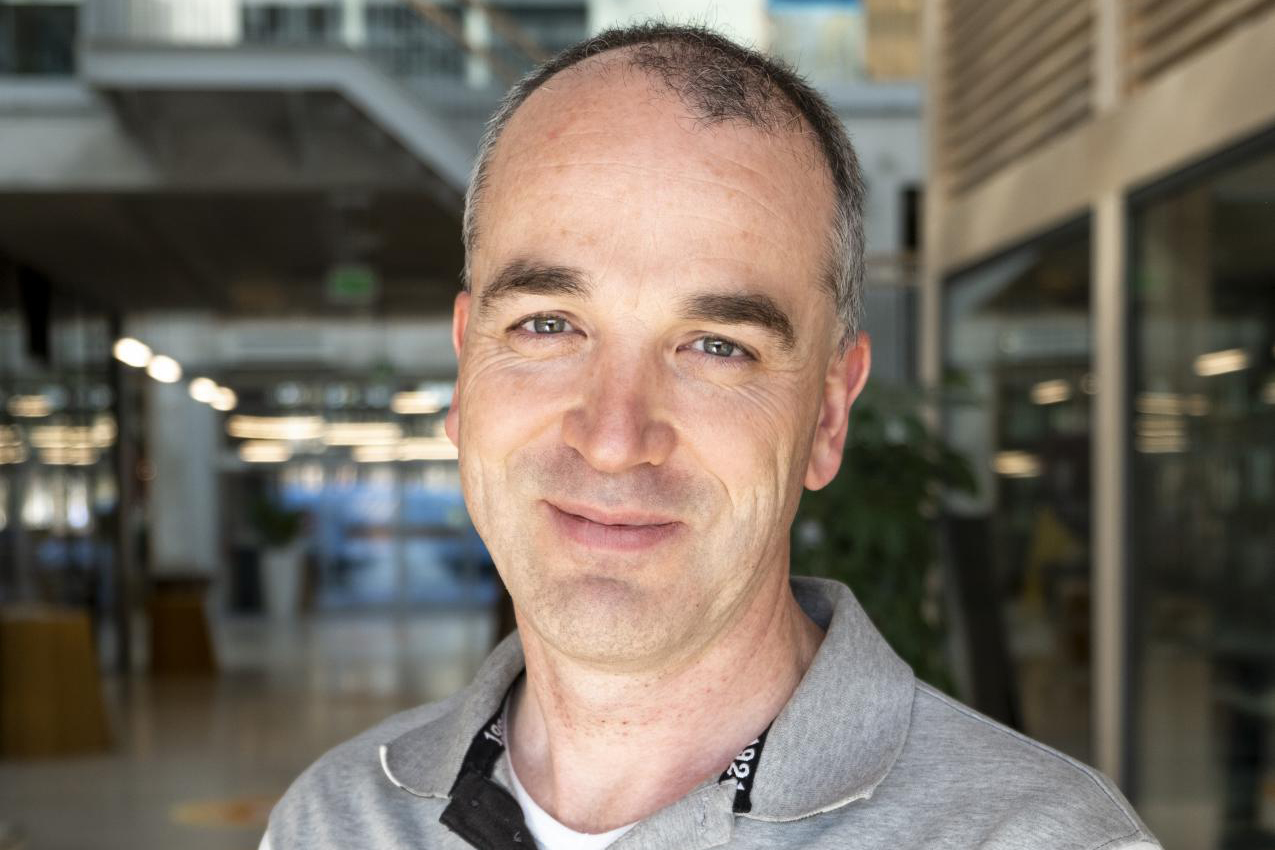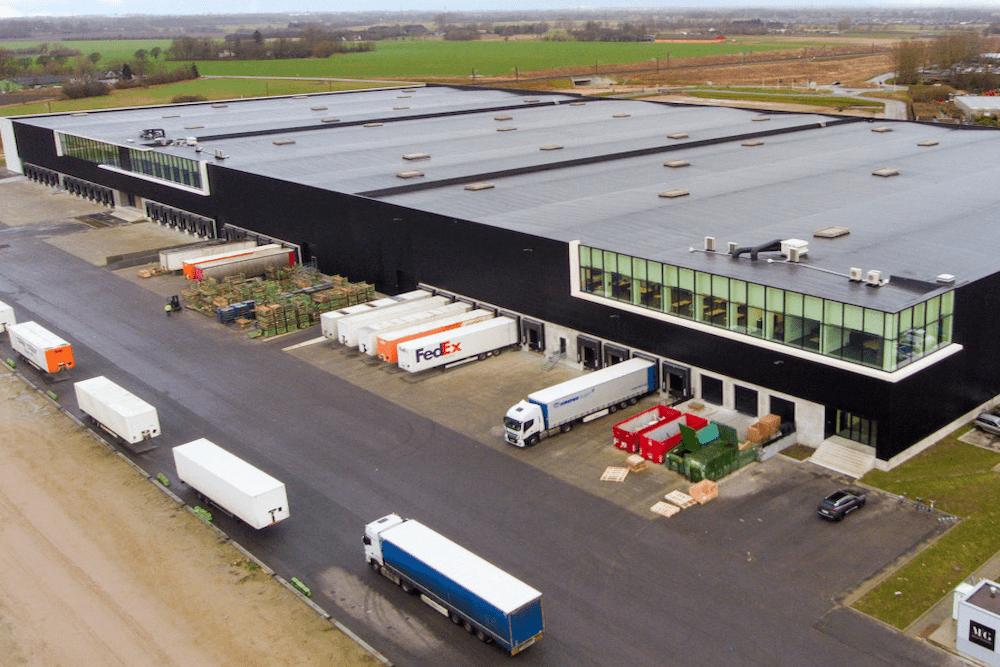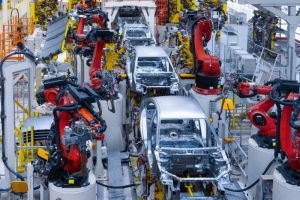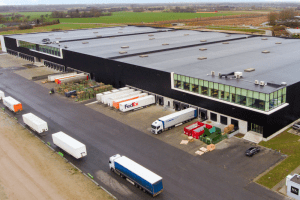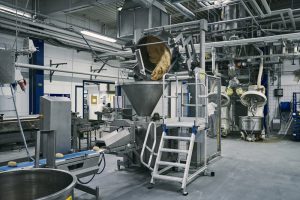Roy Lenders, armed with a solid educational foundation in Mathematics and ICT, ventured into the realm of supply chain consultancy after gaining valuable work experience. However, his true passion lay in the field of AI, which was not as popular at the time. Fast forward to the present, the tides have turned. Roy, the founder of Genzai, has shifted his focus towards AI and is now actively investing in 13 startups. His goal is to leverage the potential of AI to create robust business models, particularly in the realm of supply chain management.
Twelve years ago, Roy Lenders embarked on his e-commerce journey, becoming one of the pioneering sellers on Bol.com and Amazon. He has always had a knack for identifying emerging trends and focuses his businesses on those areas. “By riding the slipstream, you naturally grow,” Lenders explains. While it’s not always possible to predict the future, being part of a positive slipstream certainly makes things easier. This principle applies to AI as well. Leveraging his technical expertise and strategic foresight, Lenders recognised early on that AI was on the verge of a breakthrough. Unlike a passing fad, he views AI as a stable trend. “AI’s growth has been fueled by the exponential increase in computing power. Over the past six to seven years, we have developed two supercomputers capable of handling complex tasks. For less demanding computations, we rely on cloud-based solutions.”
What is your personal role in the startups you work with?
“I find my energy in creating new ventures, which is why I find working with startups so fulfilling. I don’t necessarily need to be in the spotlight; instead, I thrive on being a driving force and providing assistance. My strength lies in bridging the gap between the technical and business aspects. I possess the creativity to transform something technically intricate into a viable business model.
I have a pretty busy schedule, but I always try to make sure I’m enjoying what I do. My time is divided between management, sales, and engineering. For two days a week, I focus on building AI models. Another two days are dedicated to managing the startups we’re involved with. And one day a week, I handle sales. Additionally, I assist the startups with their network. Our main goal is to help transform AI into a successful business model. With Genzai, we initially work closely with a startup for the first two years. After that, a larger investor takes over, and we continue to be involved as a shareholder or provide guidance from the tech side.”
How do you stay on top of developments?
“I have a wide network of AI specialists on LinkedIn. As a result, our startups are at the forefront of the innovation cycle. Initially, we collaborate with universities and utilize grants to pave our way.”
Do you also work with startups with a link to supply chain?
“We have partnered with two startups from my supply chain network, namely Logichainge and Agnicio. Logichainge is a collaboration between a logistics provider, an investment club, and our team. Our main focus with Logichainge is to streamline operations and reduce costs by automating manual processes. In the logistics industry, there are numerous manual activities that can be time-consuming and inefficient. By leveraging AI technology, we have successfully automated the order entry process. This means that we no longer rely on templates, as the AI system can automatically extract the order date and other relevant information from different customer orders. To develop this system, we utilized a vast amount of data from 10 years’ worth of emails and transport records. As a result, we have reached a stage where we can utilize this technology for planning and groupage as well.”
What are the AI developments right now?
“I believe the greatest potential lies in our work with Agnicio. Our focus there is on utiliSing AI for demand forecasting. We not only rely on past sales data but also incorporate external factors that influence sales volume. By learning the correlations, AI can make accurate predictions for the future. The best part is that it’s incredibly user-friendly. We’re developing a tool that can be utilized by anyone.”
What other trends are of interest?
ChatGPT has revolutionised the field of Generative AI by enabling us to use natural language in models. This technique has become increasingly popular and versatile, allowing for applications such as forecasting, production planning, and many other innovative use cases. The potential of extracting valuable information from natural language is immense, and we can expect to see even more advancements in this area. Another exciting development to keep an eye on is Graph Neural Networks. Although still relatively new, this technique has the potential to revolutionize the application world by allowing us to map complex relationships. In fact, its impact may even surpass that of Generative AI. The future holds great promise for both these technologies, and we can look forward to witnessing their transformative effects.
What are you most proud of?
“We have developed an incredible technology with Verdifood that allows us to analyze food recipes and make adaptations when needed, like in the case of milk allergies. This technology can identify which ingredients contain milk and replace them with suitable alternatives that are milk-free. We are now taking this technology a step further by applying it to other websites for advertising purposes. For instance, we can place advertisements for ‘Tasty Tom tomato’ exactly where the word ‘tomato’ appears on recipe websites. It’s like a Google ads model specifically designed for recipe websites. Currently, we are working with 50 websites and 50 advertisers, and our network is growing rapidly. What initially started as a recipe analysis tool has now evolved into a successful business model. The commercial growth we are experiencing is truly gratifying.”
What would you advise supply chain managers?
“The application of AI techniques is what truly matters, not just the technology itself. While traditional ICT helps optimise and reduce costs, AI opens up new possibilities, especially in supply chains. The majority of these possibilities lie in generating revenue, which calls for a different mindset. Instead of solely focusing on KPIs and risk aversion, it’s important to consider broader aspects beyond cost reduction. AI can be applied in various ways within the supply chain, such as automatic entry control, production planning, and demand forecasting. Rather than worrying about the technology, it’s crucial to explore the creative possibilities it offers. Many managers express interest in AI but hesitate to take the leap. Starting with small steps is advisable, as it requires a more research and development-oriented approach. I’ve noticed that large corporations often want to progress too quickly and on a grand scale, but that approach rarely succeeds. Beginning with small initiatives is the way to go.”
Roy Lenders
Roy has accumulated extensive experience in the field of supply chain consultancy. During his tenure at Capgemini Consulting, he held the position of global supply chain manager for a considerable period. Later, at Ernst & Young, he became a partner specializing in supply chain management. 12 years ago, Roy ventured into entrepreneurship, initially focusing on eCommerce. Six years ago, he expanded his business interests into the realms of A.I. with Genzai and fintech with Boosting Alpha. Through Genzai, Roy actively participates in around 13 A.I.-driven start-ups and scale-ups. All of his companies are located at the Brightlands Campus in Venlo.
Roy is married to Martine, has three children and lives in Venlo.
Hobby’s
Running and mountain biking
Career
2021 – present Content Coach at Brightlands AI Academy, Venlo
2021 – present Co-founder and CTO at InnerBuddies, Venlo
2017 – present Founder and owner of Genzai, Venlo
2018 – present Co-founder and Chief Algorithm Ideas at Boosting Alpha, Venlo
2014 – 2019 Lectureship of Supply Chain Management, Fontys Venlo
2013 – present Founder and owner of Digital Operating Models, Venlo
1996 – 2016 Worked as a consultant at Capgemini, Ernst&Young, Districon and others in which he advanced to partner positions
